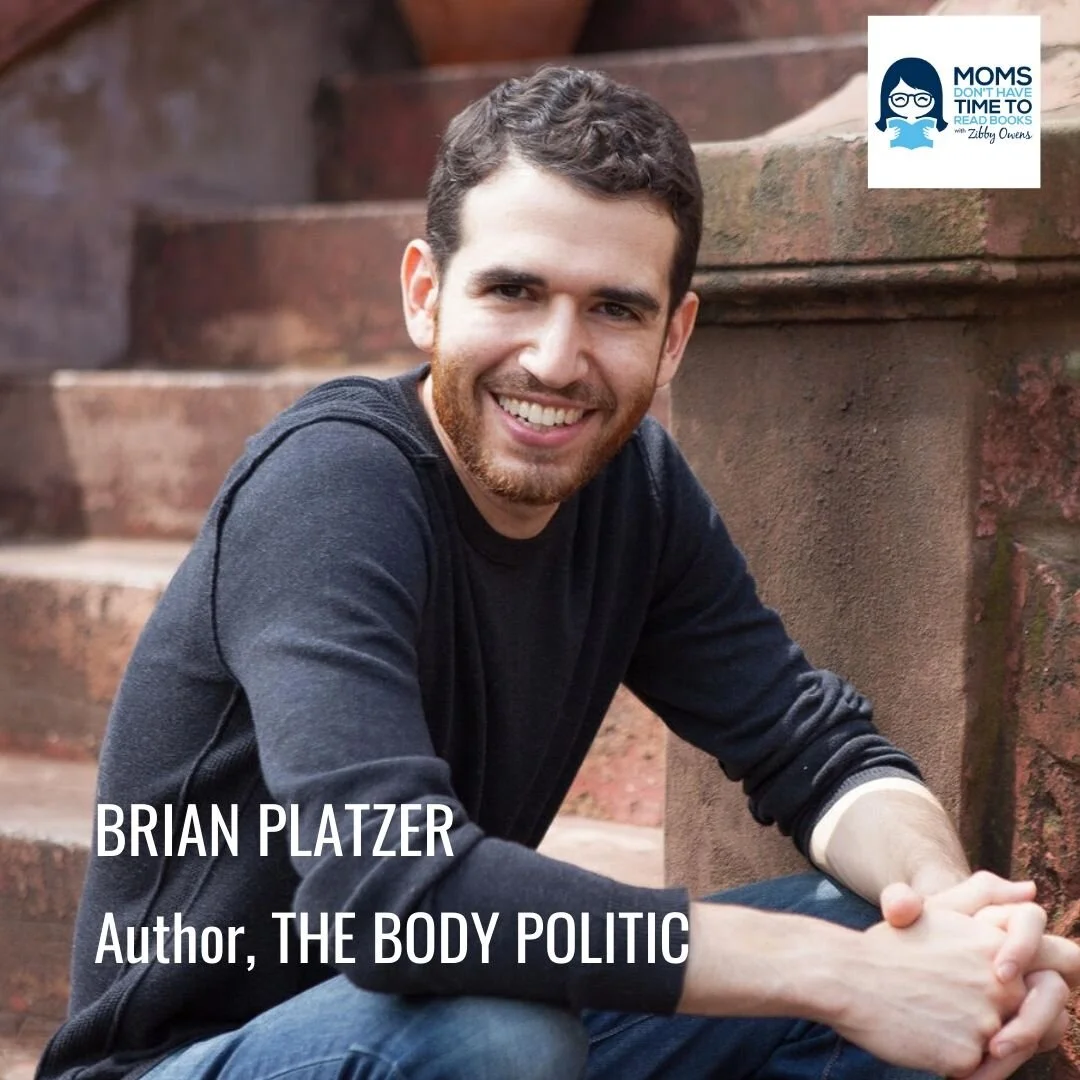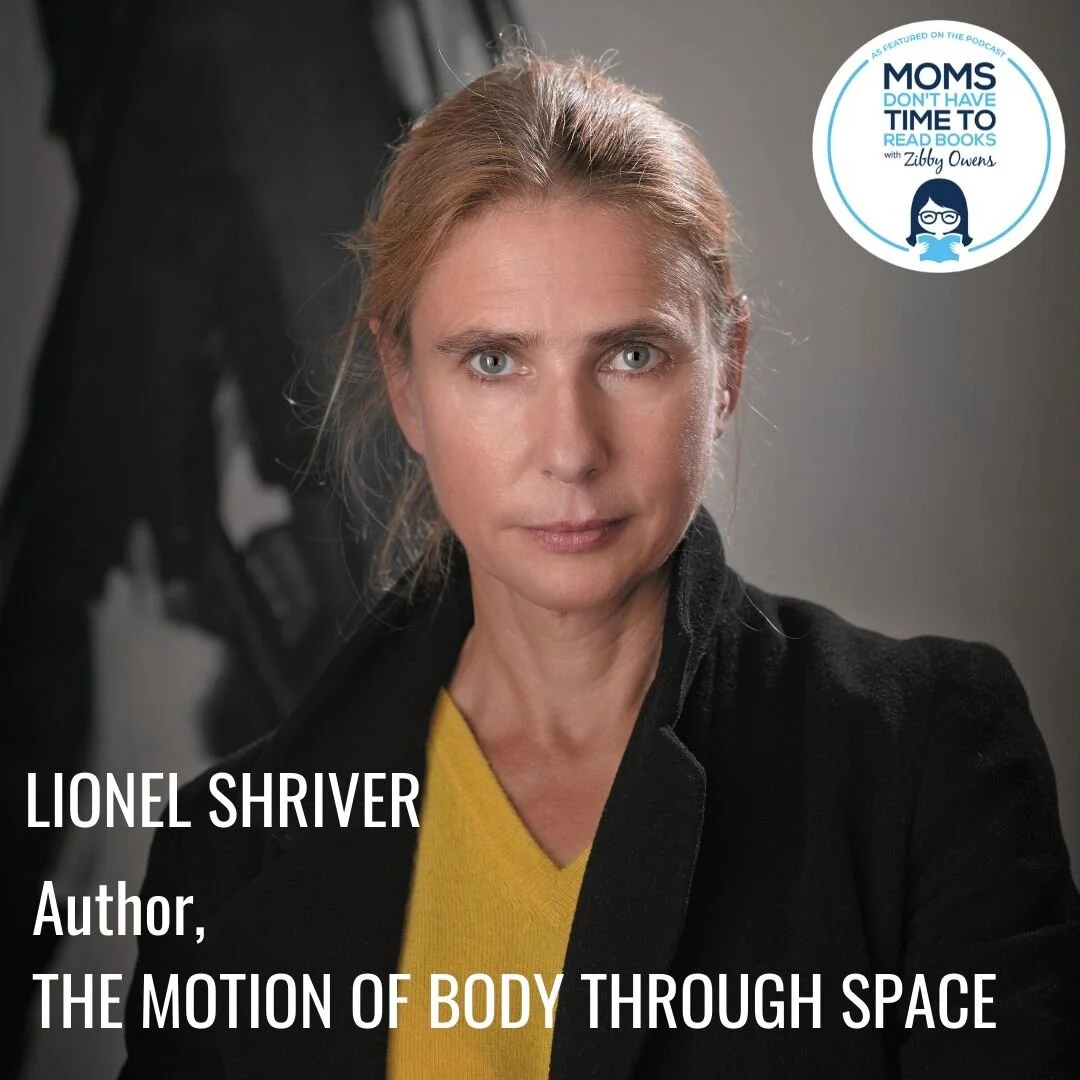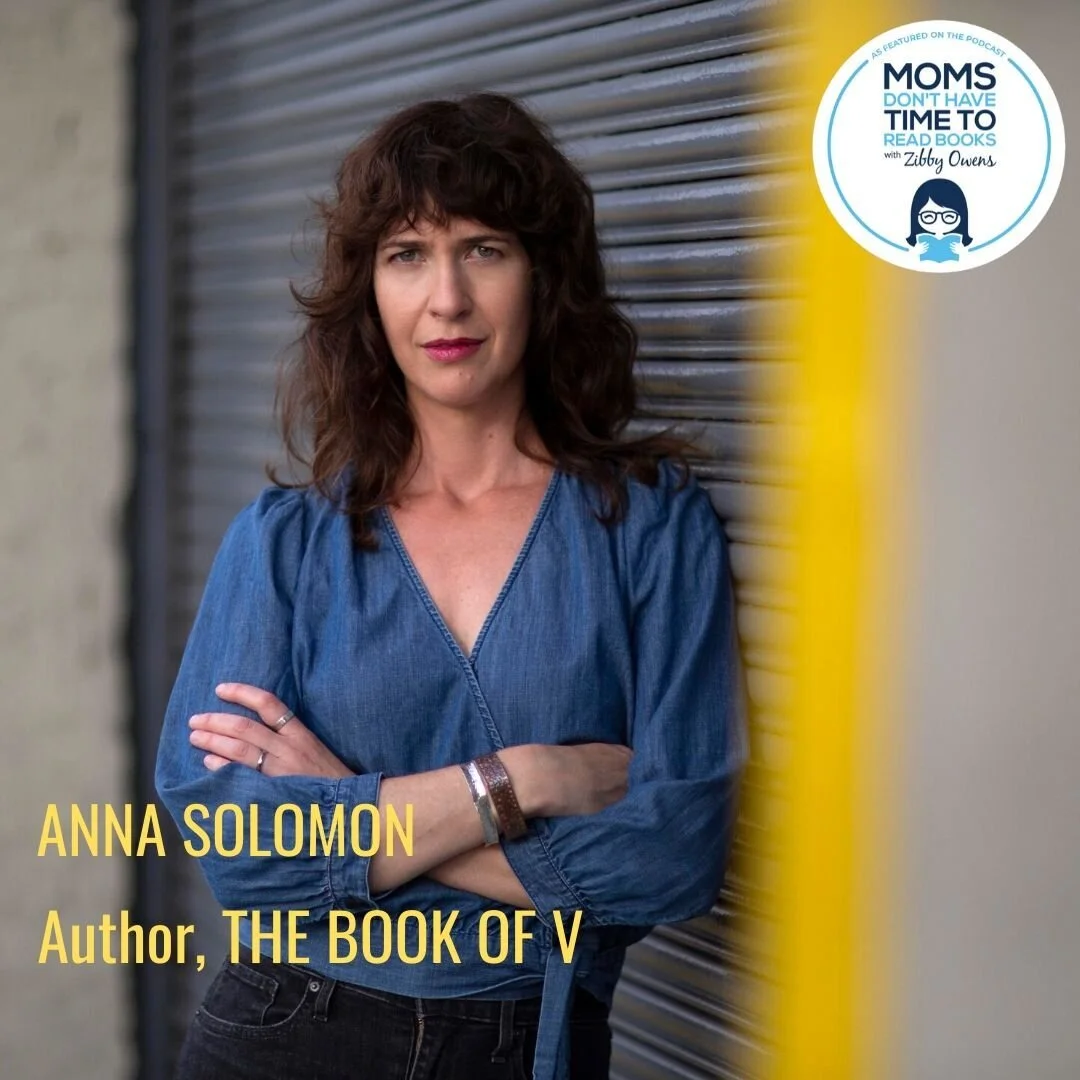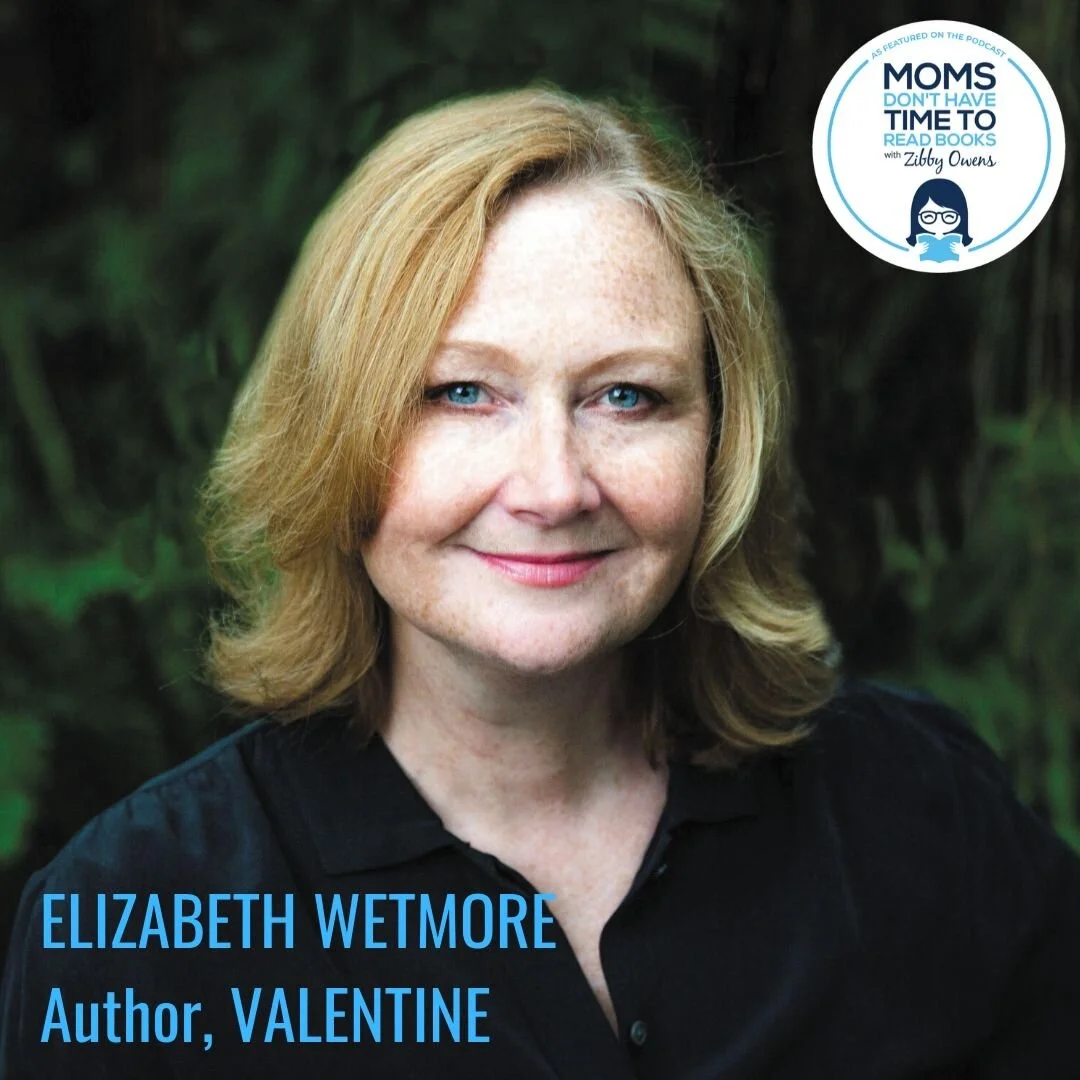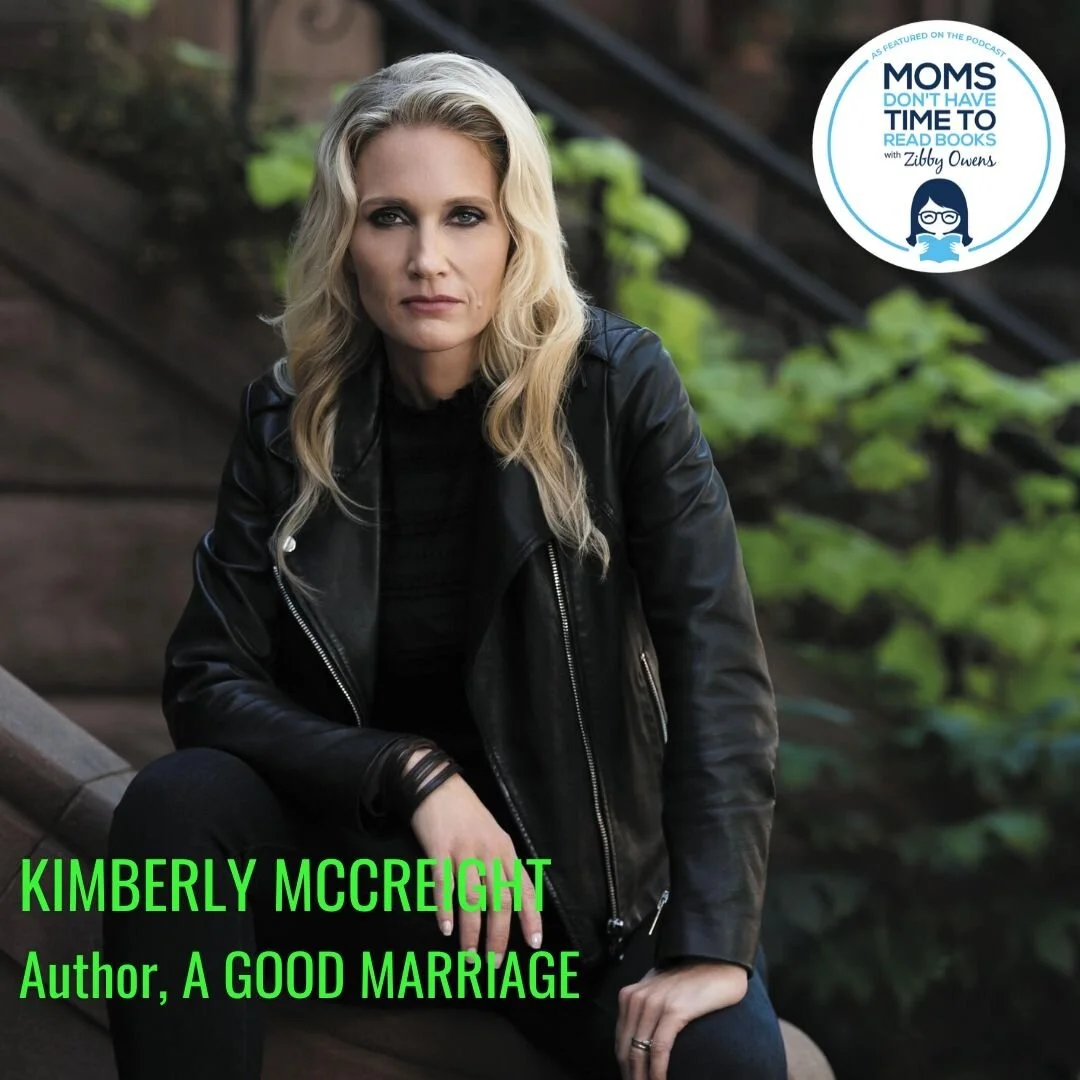Meena: The book is about two sisters named Kamala and Maya. It's actually based on a true story from the childhood of my mom, Maya, and Aunt Kamala. It's a story that I heard growing up when I was a kid. It's really about two sisters coming together leaning on their community to solve a problem. It's very basic. It's about persevering in the face of no. It's about community organizing, leaning on your neighbors to make your community better, and being creative in problem-solving. What's amazing about it is through my women's brand, Phenomenal Woman, I spent basically the last three years talking to adult women about this now era, this moment that we're in post-2016, where I think many people have thought about, what can I do? How can I speak up? How can I make an impact in my own community? I always tell people that it's just about starting somewhere no matter how small. That's really what this story is about.
Susan Choi, TRUST EXERCISE
Susan: I hope to god … that I don't have a student out there who feels like I crossed the line or abused my relationship with them in some way. I think about it all the time. I think constantly about the fact that it's not just by not doing evil that you're a good teacher. You have to really actively do good. You have to constantly be thinking about the fact that you have more power than your student. Even though these students are, like we just said, so smart, it doesn't mean that they're my equal. I always have more power than they do, and I have to be careful. Anyone who has more power than somebody else has to be careful all the time. You can't just assume, I have good intentions, I'm not going to do anything that's going to hurt anyone.
Emily Henry, BEACH READ
Emily: The other thing, this is a little bit more of a cosmic answer … I did want to share it because I think the biggest revelation for me as far as advice I want to give to creators and artists out there now, I think it's so important to make the thing that only you can make. I've been thinking about this a lot because I was watching this show, The OA on Netflix. I loved it so much. It was so strange and so surprising. It was canceled after two seasons. People were really devastated who were watching it because it was like nothing else out there. It was this weird revelation for me to see something I loved that much that felt so brave and new and strange and not like anything else and to see it be canceled. I wish I could see the rest of the show. It made me realize, just because this got canceled doesn't mean that it didn't have value in getting made in the first place. It'd be so sad if you were making something that you thought, nobody's going to want this, but you really want it and you really believe in it and it feels important to you and the thing that's what your heart desires. To just cast that aside because you don't see it anywhere else I think is huge mistake. That doesn't mean you're necessarily going to sell that thing that speaks so specifically to you, but I think that that's been my biggest revelation that I want to imprint on everyone who's making art of any kind, to just say the thing that you want to make is worthy of being made. You're the only person who can make it. If somebody else does it, it's going to be different. That's great too, but you're the only person who can do it your way. That's special. That's meaningful. I think it's almost a sort of alchemy. You're putting something into the world that only you could make. Who knows how that changes things? Who know what ramifications that could have, what that could mean to someone?
David Baldacci, WALK THE WIRE
David: This is the sixth installment in the Amos Decker series. He's my Memory Man. He's this ex-football player who had a brain trauma while he was playing. It changed his brain, basically. It gave him an infallible memory. Now he's a detective. He works for the FBI. He's been called to North Dakota along with his partner, Alex Jamison, because a body's been discovered. The interesting thing about the body is it's already been autopsied like you would have in a postmortem. They don't know why they're being called in for a local murder. The FBI usually is not. When they get up to this town called London, North Dakota, it's a fracking town. It really has just been built up overnight. The whole town is full of dark secrets. A lot of things are going on that aren't readily apparent. What really drew me to this place to create it were a couple things. One was the fracking component. Two was this military installation that's there that has some secret mission going on. Three, there is this religious organization that's there that has something interesting to do with the plot too. That triumvirate of plot elements made it pretty cool to write.
Laura Hankin, HAPPY AND YOU KNOW IT
Laura: Female friendship, I think, is so fascinating, particularly when women are thrown together not because of some deep connection, but because of some circumstance like being new mothers in the same neighborhood. In Happy and You Know It, a failed musician who has been kicked out of her band right before they get famous ends up taking a job singing to a playgroup of new moms and their babies on the Upper East Side. She gets drawn into their lives. Meanwhile, the mothers, who outwardly present as very perfect but are inwardly dealing with all sort of anxieties and worries about new motherhood, they grow to love this musician as well. Her presence begins to reveal some of the undercurrents in the playgroup that everyone's been trying to avoid acknowledging.
Valerie & Lynne Constantine, THE WIFE STALKER
Lynne: The Wife Stalker takes place in Westport, Connecticut. It is about a woman whose husband is just coming out of a deep depression that has affected their marriage. She thinks that it is because he is getting healthy. What she doesn't realize until it's too late is that it's the woman running the retreat and health center that's making his spirits perk. They have two small children. When he leaves her for Piper, she begins to look into Piper's background and is horrified to discover a wake of dead husbands in Piper's past. She has to try to save her family before it's too late.
Maya Shanbhag Lang, WHAT WE CARRY
Maya: Writing about that was so cathartic and freeing. It helped me process these memories that I didn't even know I was carrying around inside of me. As kids, we just grow up in whatever soil we have, whatever environment we have. We don't really think about it. I think kids are remarkable and miraculous for this reason. We just find ways to thrive like flowers between the cracks in the sidewalk. I had never thought of myself as having a particularly rough childhood. I went to great schools. I was really close with my mom. I certainly never thought of myself as having been abused at all. To have that vantage point as a grownup and as a parent myself, to be able to look back and say, oh, that happened and I never gave it thought and now I can, that was really powerful. For a lot of people who have grown up in dysfunctional homes or with difficult parents, I think a lot of times what we tell ourselves is, whatever happened wasn't that bad. Other people have it so much worse. Other kids have it so much worse. To come out of that stance and instead of trying to put him on a spectrum of, well, how bad was he? to instead just claim my story and say, this is what happened, that freed me from under its spell.
Brian Platzer, THE BODY POLITIC
Brian: The Body Politic's about a couple things. I think the easiest way to introduce you guys to it is that it is about a group of four friends who first meet after September 11th. Then the narrative of the novel begins right after Trump's election. One of the friends worked on Hillary's campaign and is dealing with his disappointment. Another one of the friends has a neurological disorder similar to my own which keeps him bedridden for most of the time. Under the stress of the new political reality and his illness, secrets from their past arise to the surface. People are in positions to confront those who maybe hurt them in the past and to come to terms with their relationships in the present.
Mary Katherine Backstrom, MOM BABBLE
MK: I am in my zone now. I understand this. I see your Play-Doh. What I am just now seeing in your house is exactly what I cover in this book. Honestly, I didn't want it to be too serious. I didn't want it to be a prescriptive book. I wanted it to be like a conversation between two parents from one mother to another like a casual conversation on the couch. My entire goal was just to make parents feel a little less alone. I repeat a lot sometimes that I struggle with postpartum depression, but that's where really all of my writing career was born from. I had a very hard time leaving my house when I had my first son. Just the anxiety was very paralyzing. I found the majority of my supportive community online. Being able to share just very normal experiences of parenting through stories helped me feel less alone. Being able to write those and then share those with other parents has been a really gratifying experience for me. The feedback that I get from other parents is just awesome as well. I love hearing people say, oh, my gosh, I thought that I was alone in that.
Lionel Shriver, THE MOTION OF THE BODY THROUGH SPACE
Lionel: The thing is I've always found it really heartbreaking when people have a relationship to their bodies that is hostile. That relationship can be consuming for a lot of people in a really unpleasant way. I find that very sad. I'm afraid that's especially the case with women, though that neurotic relationship has become more masculine as well. After all, there's a big connection between my current book, The Motion of the Body Through Space, and a previous novel. It's a couple books back called Big Brother, which is all about obesity. I steered very carefully clear of issues of weight in the new book because I feel I've already dealt with that. I don't want to be redundant. They are, in some ways, companion pieces because I'm interested in the broader issue of our relationships to our bodies. That also means that, especially as the years advance, I'm interested in the experience of aging. That's something that, whether or not you're interested in it now, it will eventually become interested in you. You don't have much choice unless you're just going to die early, and that's not exactly enviable either. It's fascinating. It's one of the hardest things in the world to do well.
Anna Solomon, THE BOOK OF V.
Anna: At times, it felt like I'm making a building. I felt like an architect. Then at other times, I was like, this is more like I'm making a symphony like a composer. I'm neither an architect, nor a composer, nor do I know much about either thing. I am a very structural thinker. I think the only way I could've written this book or even conceived of it is because of that. I use a lot of index cards. Every single scene was an index card. Then I had them color coded at various times. Then I would put them up in my workspace so that I could see how they were relating to each other. I actually did it part by part to break it down further because the book's in three parts. There are three women, but then there are three parts to the book. They're going to weave like this. Then I would put in the different objects and themes and gestures that I had running through the book. I would attach them to those cards because then it helped me to see it visually instead of just -- you can't hold a whole novel in your head, even a slim novel, and this is not one. This is a big, ranging novel. Finding ways to be able to visualize pieces of it at a time was really helpful.
Elizabeth Wetmore, VALENTINE
Elizabeth: I've really come to understand in the last week -- I'm a bit of a hermit in my regular life, like actually really a hermit. I've always thought that I wrote mostly for myself and my own amusement. You'll hear writers talk about who their ideal reader is. My ideal reader is like me. I've been so blown away at what a freaking honor it is and how touched I am to be learning that so many people are reading the book and how meaningful that is to me and in particular, to be hearing from people who are sending messages saying that they’ve been moved by the book. They're all amazing, but the ones that are most amazing are the ones who are coming from women and girls who know that part of the world and who are so delighted to see characters who are so familiar to them in literature.
Ruthie Lindsey, THERE I AM
Ruthie: I'm like, listen, when you finish this, forget me. Forget my name. Forget my story. This is for you. Healing is for you. This hope is yours. This love is yours. You don't need me. I'm going to get the fuck out of the way so you can do this journey because you're so deserving. I feel like the healing journey is remembering what's so right with us, not what's wrong with us. It's an unlearning more than anything else because I thought I was so broken. I believed that. I thought my body hated me. It was the source of this pain, so I thought my body had just completely failed me. Now I'm like, oh, my god, this beautiful body that’s just been loving me and holding me and holding the divinity within me and calling me home and just protecting me and being so strong and so resilient and loving me so hard when I hated her. I think all of these painful things that happened ultimately were all these invitations to come home to myself and to do this work. If my life had turned out the way I thought it would, I would be a very surface-y human that would never have woken up, that would never have gone so deep, would never have been able to be a good friend, honestly, an empathetic friend. I wouldn't be able to show up in the world the way that I believe I can now and have the honor of getting to now because all those things happened. I wouldn't change it. I wouldn't change one single thing because I know it all created me to be this human that I have the honor of getting to be today that's messy and that makes tons of mistakes but also is filled with so much goodness and wonder and beauty just like every other soul on planet Earth.
Lena Dunham, NOT THAT KIND OF GIRL
Lena: I wrote a novel in fourth grade. Everyone has one of these. I recently found it. It was about a boy who lived in the ruins in India because I'd heard once there were some ruins in India, I did not do good research, and has to save his friend from a snake bite. I remember I was in fourth grade and thought people didn't like me. For that period of time, I was in the ruins with this kid who was lonely but much more successfully adventurous than I was. It gave me that sense of connection and purpose. Writing's done that for me ever since. It seems like this is how it is for you. It's also a way to frame your experience and understand what you've been through and also try to reach a hand out to other people and ask, do you know what this feels like too? For me, being read and having someone understand or exchanging a book with someone that we both love, reading someone else, that's the way that I know how to feel understood.
Alicia Keys, MORE MYSELF
Alicia: I started to dissect … Different moments in my life were revealing that I was quite oppressed, I would use the word, from the standards of what it is to be a woman, what it is to be a successful woman, what it is to be "beautiful," what it is to be beloved or whatever it is. I started to find myself changing myself or being extra-concerned when I picked up my kids from school. Do I look nice enough to go out with? and all these things that were -- really, I just truly didn't understand how convoluted, how that was affecting me. I didn't even realize that I was that person. I never even thought I was that person. I thought I was super independent and completely a feminist and really strong. I realized, wow, there's so much of me that I'm discovering. That discovery started to uncover parts that I wanted to share and I wanted to think more about and really challenge the way that we're told to be who we think we're supposed to be because we see it in front of us since the day we're born. We don't really get a chance to meet ourselves. That was what I was starting to do. I wanted to share my personal journey with discovering more of myself.
Lindsay Powers, YOU CAN'T F*CK UP YOUR KIDS
Lindsay: It's an eye-catching title. It's provocative because I wanted to start a conversation. I think that parents are under so much pressure to be all the things to everyone, especially mothers, but everyone. I'm really proud that my book doesn't just speak to moms. It speaks to all different kinds of families and all different kinds of caregivers and family setups. I had two motivations to writing this book. I've been a journalist for a long time, specifically covering science and health and culture. When I was judged -- I opened the book talking about a woman calling me disgusting for breastfeeding my then ten-month-old at a pizza shop in Brooklyn. I just felt like, what the heck? C'mon, we're all in this together. Chill. You kind of have that feeling like you can't win. You're damned if you do and damned if you don't. You breastfeed too long, you're a weirdo. You don't breastfeed enough, you're a bad mom.
Brad Meltzer, THE LINCOLN CONSPIRACY
Brad: Those are the parts we always put in the book that are most important, not where they're succeeding and do amazing things, but where they're totally utterly failing; watching Abraham Lincoln lose eight elections. Walt Disney goes bankrupt with one of his first businesses. He's so poor at that moment that he sleeps in a bus station. We all know Disney as this great property. Everyone goes to Disney World and Disneyland. It's the most beautiful place and wonderful place on earth. When I teach my kids that Walt Disney failed, that the first Mickey Mouse cartoon was a disaster, that when Walt Disney named Mickey Mouse, he called him Mortimer Mouse -- his wife is like, "That's a terrible name. Mortimer? That's a terrible name." He said, "Okay. What do you think is better?" She's like, "I don't know. What about Mickey?" That's how the world gets Mickey Mouse, not because America's the greatest country on earth, not because Walt Disney's always a genius, because his wife is like, "Shmuck, listen. Pay attention." My kids are like, "Oh. So the first draft can be bad?" I'm like, exactly. You've got to work at it to make greatness. I want to teach my kids that you fail and you fail and you fail, but if you get back up again, that's how you fly.
Kimberly McCreight, A GOOD MARRIAGE
Kimberly: My book, A Good Marriage, is set in my neighborhood, Park Slope. It takes place over one week in the summer when most of the kids are away at sleepaway camp and their parents are all gearing up for the event of the summer which is an adult-only party with a sexually adventurous side to it, sexually adventurous but fun. It was always meant to just be fun. This year after the party, one of the women turns up dead. Her husband is quickly arrested. He reaches out to a former law school classmate named Lizzy. As she's drawn into Park Slope, she quickly realizes that neither her friends nor his wife were who they appeared to be. Then her own husband doesn't seem to be either. A Good Marriage is part legal suspense, part domestic suspense. It's also meant to be a genuine exploration of what it means to sustain a marriage over time and the secrets some couples keep and the compromises they make in order to stay together whatever the cost.
Alli Frank & Asha Youmans, TINY IMPERFECTIONS
Alli: We think it's a unique lens in looking at a school and looking at a private school. The intergenerational part is … fifty years of these three women who are black who have lived through different generations in this very privileged, rarified world. It, through humor, looks at what similarities they share with the community of which they’ve invested themselves professionally and educationally, but also how they're different. It is all about love with the family, but it's also love of a school community. For us, we've both been educators for over twenty years. We love schools so very much. In a way for us, this is our love letter to schools and love letter to school communities because no other company is full of humans for whom the product is actually humans. When you have that, it's just a whole lot of messiness, but a whole lot of love. That's really why we wanted to write this.
Betsey Johnson, BETSEY: A MEMOIR
Betsey: That's why I thought my entire story might be interesting, not just the fashion piece. That's just one little piece. I consider the family piece, the single mothering piece, the getting through the illnesses piece -- that was harder than the fashion business piece. Fashion and cutting and sewing and the clothing thing was always a fun category I loved because of my dancing school and my dancing costumes. All of a sudden, my dear friend Mark, the writer who put all my talking together, he just kept bugging me how I have to do a book. I have to do a book. I said, "No, I can't write, Mark. I can't do a book." He really made me do it a couple years ago. I'm real happy with the way it looks. I was allowed to put some drawings in there and some little doodles. A book with just words is really terrifying to me. I'm not a reader of "book" books. I think I want to start now, if someone would recommend a really great book. Anyway, I'm just so relieved that it's out and people seem to like it. It's a light read and a quick read and at the end of the day, I hope, an inspiring read.







